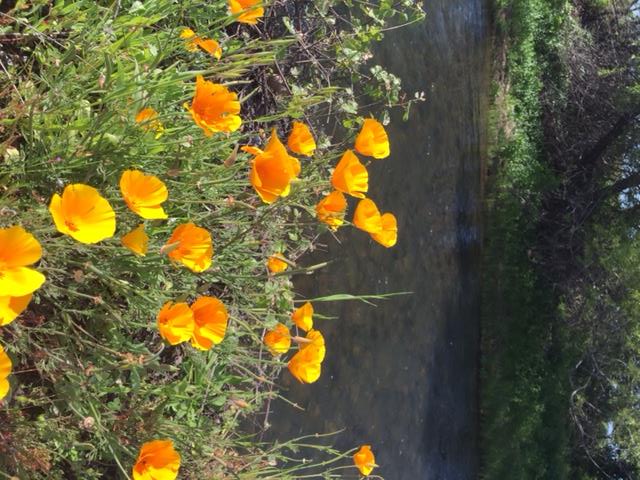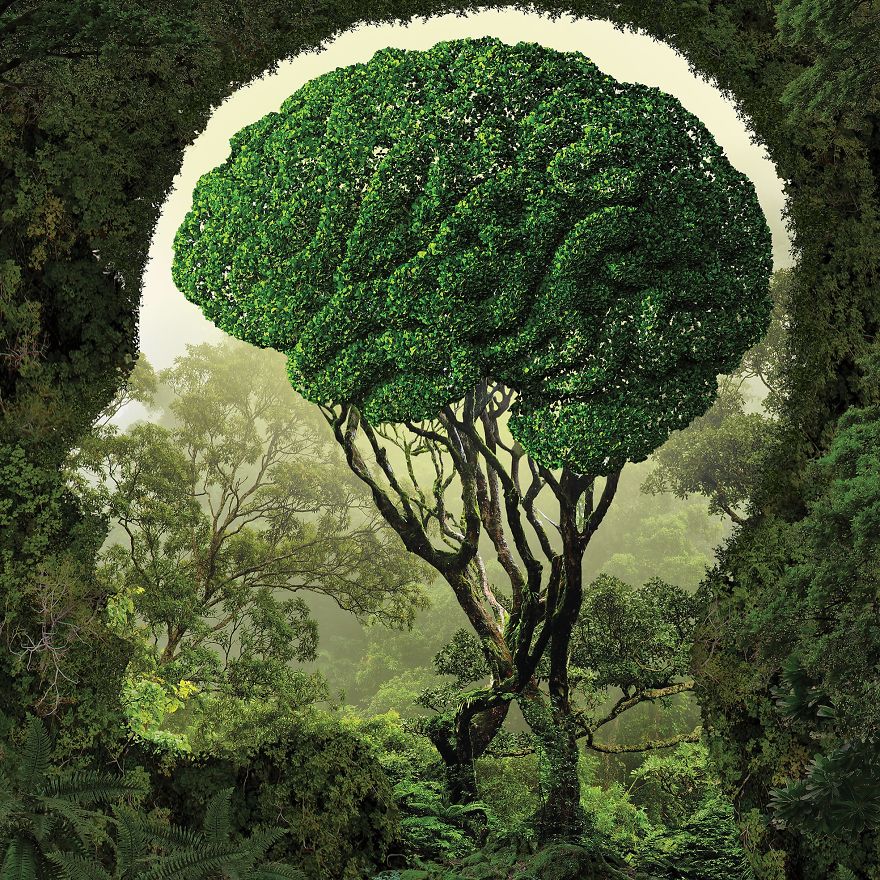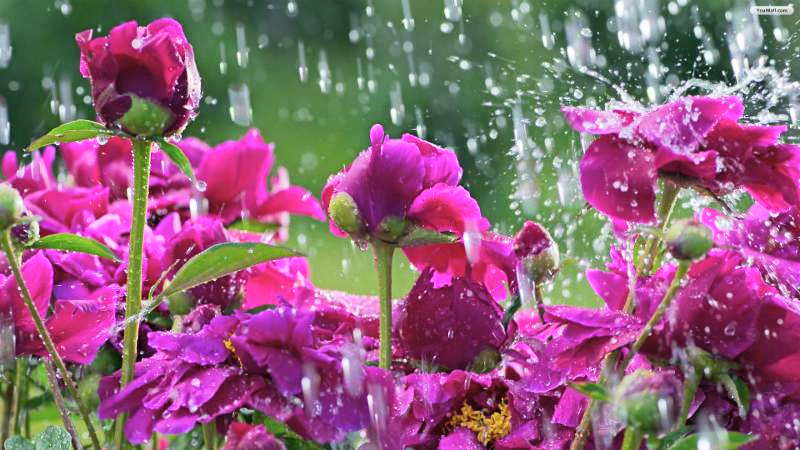Listening deeply to the earth from one day to the next, I could feel the change from one season to the next. The subtle shift from the zenith of spring to the beginning of summer holds the mystery of life on this, the only planet with life we know of in the universe.
 Rain continues to fall in northern California, more rain than I’ve seen in over 40 years here. A few days ago, as I took a meditation at a picnic site in the parkland affording a long view of the rushing, roiling stream, it began to rain again.
Rain continues to fall in northern California, more rain than I’ve seen in over 40 years here. A few days ago, as I took a meditation at a picnic site in the parkland affording a long view of the rushing, roiling stream, it began to rain again.
I came prepared with coat, umbrella, sitting pad and plastic, and remained put as it began to pour. There were a few stragglers at first—runners, cyclers, even walkers.
But after 20 minutes I was the only human left in the park. I felt foolish at first sitting in the rain, even with plastic over my legs and an umbrella over my head. But the residual social concern passed, and with it personal concern, except for getting wet.
Walking back to the car in the rain after three-quarters of an hour, the lushness of the land was overwhelming. In that short time, the quarter-mile wide, minimally tended municipal park had completely returned to the earth.
The solitude was intense, but I didn’t feel a trace of loneliness. Enrapt, I stopped to drink in the unexpected beauty. With one’s whole being, one saw/felt that rain is the love of the earth.
Is the main reason Western civilization has come to a dead end due to its utter lack of relationship, respect and reverence for the earth?
The Western mind views the earth in terms of resources at the corporate level, and as a playground on the personal level. TV shows about surviving in the wilderness, or living as pioneers in Alaska are popular, but they contribute to “consumers” being spectators on the earth.
In the last 25 years, the Western mindset has gone global with the rise of Chinese capitalism and consumerism under state control. If anything, the Chinese, in no small part due to the incredible crowding of their cities, have even less relationship with nature than the Americans they’ve emulated.
At the same time, indigenous cultures have become romantically attractive to disaffected people in wealthy countries in the West. But we cannot go back to indigenous times.
We can have a direct relationship with the earth however, and it is essential for our own inward survival as individuals that we do. That’s a completely different thing than personal relationship.
When people talk about a personal relationship with nature or God, you can be sure they’re deluding themselves. In fact, it’s only by setting aside the personal orientation that we can have relationship with nature and other human beings. I’m not saying there is no place for the personal element; just that it can’t be the primary, much less the sole mode of living as it has become.
Tech wizards like Elon Musk and Jeff Bezos have no more relationship with the earth than the 19th century monopolists J.D. Rockefeller and J.P. Morgan. They make pretty commercials that supposedly show a newfound respect for nature, but when it comes down to it, Mark Zuckerberg and his ilk are already moving into the next frontier—hacking our brains themselves.
Where do we turn? Thousands of meditation teachers, retreat centers and meditation groups from A-Zen have sprung up in the last 20 years. Yet American and Western culture is still as confused and dark as ever. Indeed, more so.
Though I have no more affinity for meditation teachers than I do for the tech masters of the universe, I’m sure that awareness is, or can be, quicker than thought. When one learns how to observe without the observer, attention not only encompasses thoughts as they arise, but ends the entire movement of thought/time.
And when thought/time ends in unwilled, undirected attention to what is, inwardly and outwardly, there is direct relationship with the earth and everything on it, including humanity.
Western civilization, indeed man himself, has come to an end. We have no choice but to bring about a new human being within ourselves, and create a new culture, one that allows human beings to thrive in imperfect harmony on this beautiful earth.
Martin LeFevre

